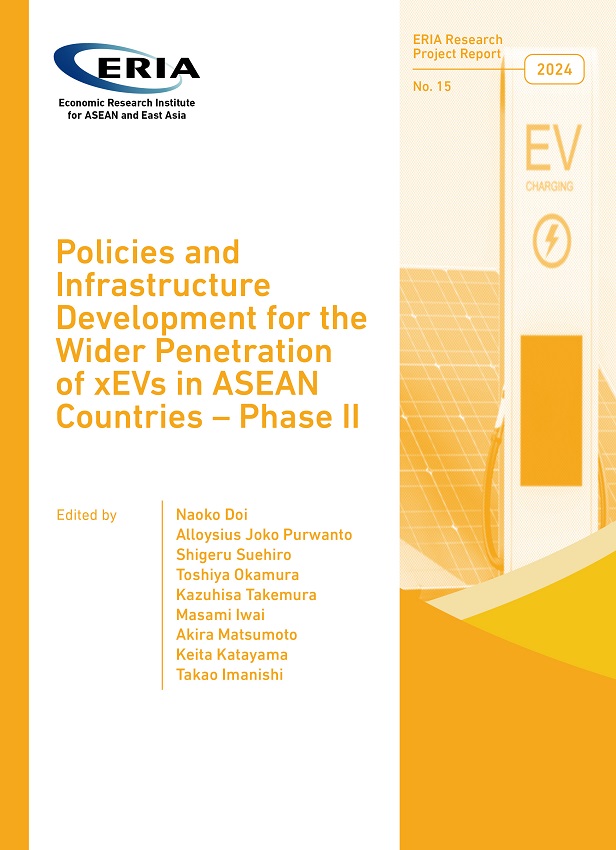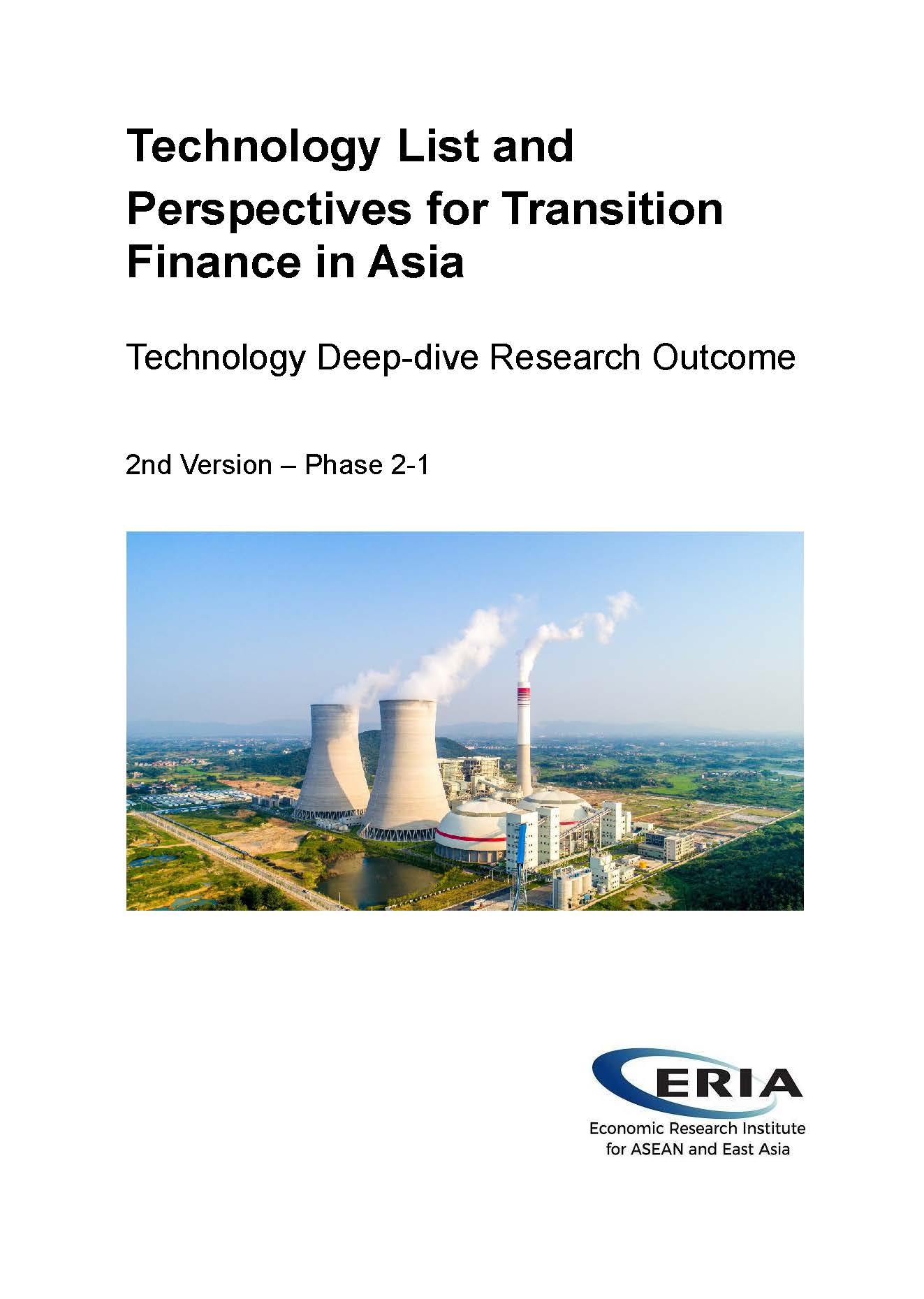Policies and Infrastructure Development for the Wider Penetration of xEVs in ASEAN Countries – Phase II

Date:
17 September 2024Category:
ASEAN, Energy, InfrastructureType:
Research Project ReportsTags:
energy, EV, electric vehicle, xEVs, policies, infrastructure development, ASEANPrint Article:
The widespread adoption of electric vehicles (EVs) is seen as a crucial step in reducing oil dependence, enhancing local air quality, and combating climate change. Many countries worldwide, including those in ASEAN, have formulated plans and incentives to encourage the broader adoption of EVs.
This study offers a comprehensive scenario analysis of vehicle electrification, examining both the Fuel Cycle and Vehicle Cycle perspectives. It reveals that emissions associated with battery electric vehicles (BEVs) are minimal on a well-to-wheel basis but significant during the production process. Countries experiencing rapid car penetration tend to have a higher proportion of emissions from production processes, and the decarbonisation of the power generation mix influences emissions in both fuel and vehicle cycles.
The study underscores the influence of policies on charging infrastructure and power supply allocation on EV adoption in urban areas. Strategies to promote charging system deployment may include integrating charging space and power capacities into building codes, developing ‘battery swapping’ and ‘battery as-a-service’ models, and combining ‘battery swapping’ with ‘battery leasing services.’ These practices are crucial for fostering widespread EV adoption and ensuring a seamless transition to electric mobility.




